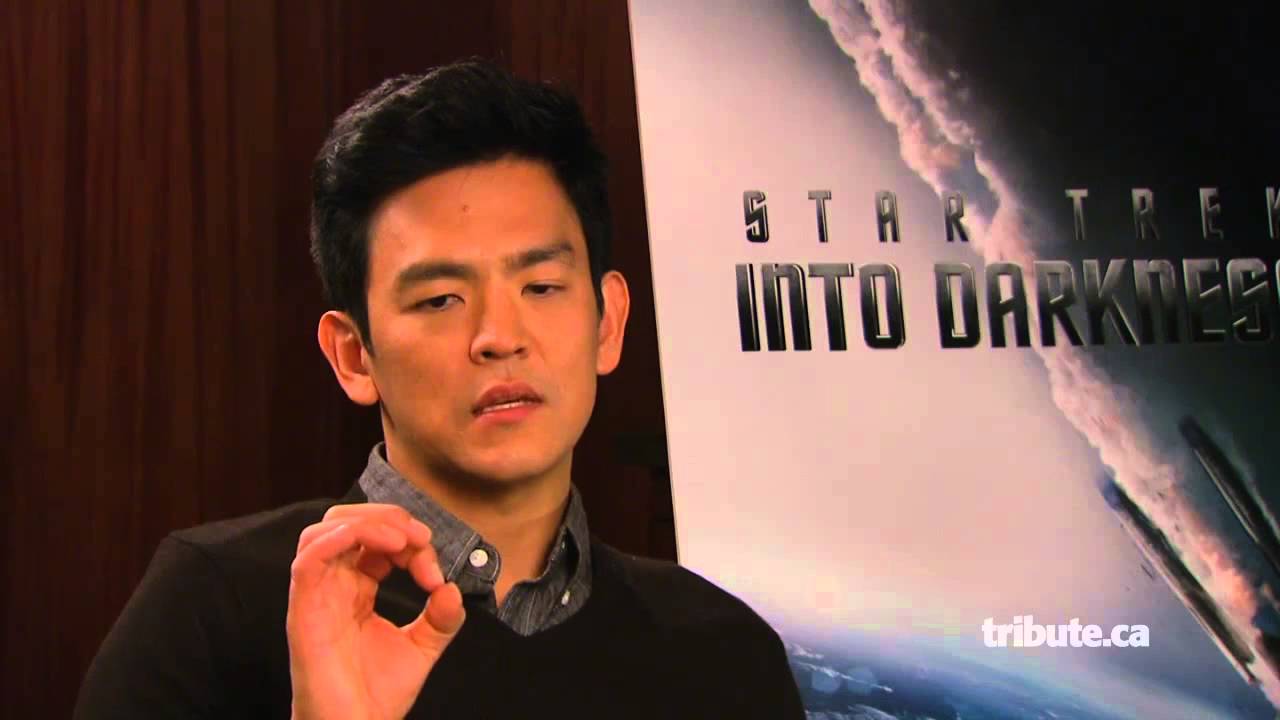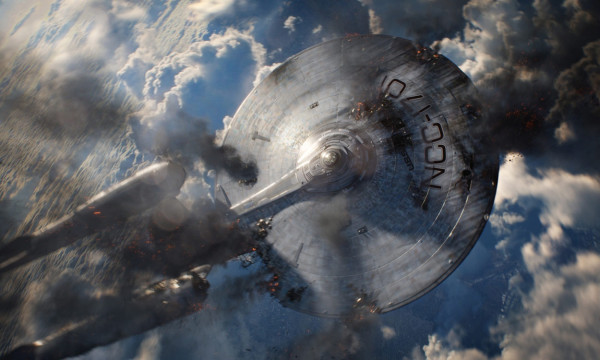By Leeland Lee
Spoiler alert: In the latest installment of the Star Trek franchise reboot, Lieutenant Sulu dies a cruel, horrific death.
How does it happen? Does he get vanquished at the hands of a murderous Klingon? Sucked into a worm hole? Blown into subatomic particles by an out-of-control warp core breach?
No, actually it’s far worse than all those treacheries combined.
John Cho’s character suffers the ignominious fate of nearly being written into oblivion by a team of scribes who, when conceiving Sulu’s role in the movie, clearly set their phasers to boring.
While other crew members of the Starship Enterprise seem to be constantly beaming in and out, doing battle with alien life forms, or happily messing around with Starfleet Command—it’s shameful that an integral character like Sulu is asked to do so little. At no point in the movie does he handle a weapon, throw a punch, or make a heroic gesture. At least in the first movie he swung a sword and killed something ugly. Here, he’s nearly as inert as intergalactic furniture.
I say “nearly,” only because there’s a brief, unnecessary moment in the film when Sulu assumes the captain’s chair, enabling him to utter an empty threat to the movie’s arch villain. But it’s not enough, and feels more like equal opportunity patronage than anything else. Plus he misses out on all the action.
What’s most unforgivable is that, unlike the other crew members, Sulu’s character is as flat as the Enterprise’s front windshield. He possesses no rivalries, no past, no torments, and no apparent attachments with anyone else onboard that ship.
By movie’s end, we know nothing about him, except that he is the Enterprise’s designated button-pusher/chauffeur. I’m just amazed his uniform didn’t come with a Starfleet-sanctioned Coolie hat.
And while Captain Kirk is busy wooing alien women left and right, while Spock is locking lips with Uhura, and even McCoy is shown flirting with a fellow crew member (while disarming a torpedo, no less!)—Sulu is portrayed as all-business, apparently too consumed with driving the ship to have any time left over for chasing female tail. Sound familiar?
Then again, as the film wore on, I began to realize that Sulu does, in fact, have an important role. You might even say, it’s an incredibly necessary role, since he’s the NARRATOR for nearly half the movie. Without Sulu telling us precisely what’s unfolding, we, the audience, would literally be lost in space. Consider the following sound bites:
“Flight check’s complete, we’re good to go.”
“Captain, there’s a ship coming at us at warp.”
“He’s locking phasers on us, sir.”
“Sir, their weapons have been knocked out.”
“If we don’t get back on line, we’ll be incinerated on reentry!”
Regrettably, during the long stretches in the movie that don’t call for explicit narration, like during outdoor battle scenes and chase sequences, Sulu disappears from the action altogether. Where’s Sulu? I kept wondering. Probably out fetching intergalactic White Castle.
If there’s one thing I learned from this movie, it’s that in the 23rd century, when starships routinely cruise at warp speed, when humans make war—and love—with alien species, Asian men have evolved little beyond our personality-challenged, conformist ways. During the movie, Sulu utters the classic words, “Yes, sir,” at least on three separate occasions. Not exactly the words of masculinity, a domain that may forever remain—at least in cinema—our true Final Frontier.
ABOUT THE AUTHOR: Leeland Lee has previously written for 8Asians.com about Asian self-hatred in The New York Times
photo credit: Paramount Pictures









